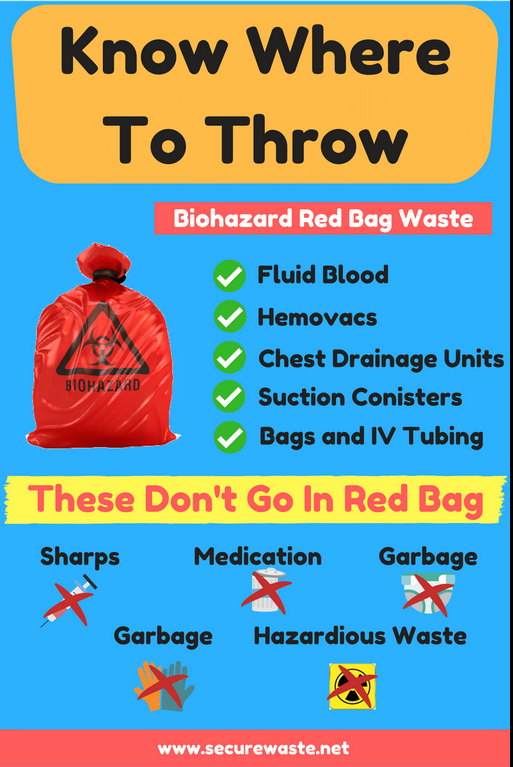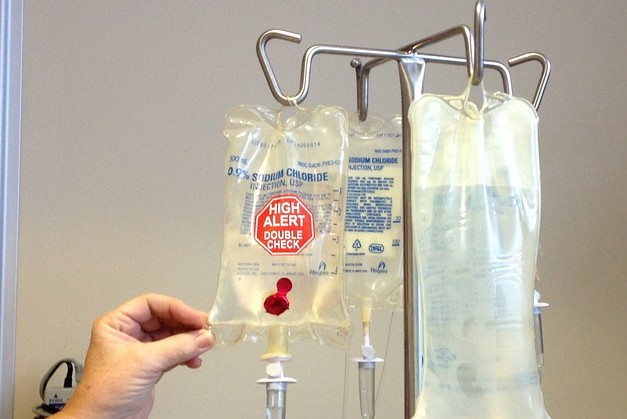Safeguarding Wellness: Expert Medical Waste Removal Services for a Clean Atmosphere
Safeguarding Wellness: Expert Medical Waste Removal Services for a Clean Atmosphere
Blog Article
The Importance of Proper Clinical Garbage Disposal: A Guide for Health Care Facilities
Appropriate clinical waste disposal is a crucial aspect of healthcare facility administration, making certain the safety and wellness of clients, personnel, and the setting. From understanding the different classifications of clinical waste to abiding with governing needs, health care facilities should adopt reliable waste segregation practices and choose appropriate disposal methods.
Recognizing Medical Waste Categories
Comprehending clinical waste categories is critical for proper disposal in healthcare facilities. Medical waste is a wide term that includes various sorts of waste created in medical care settings, such as medical facilities, clinics, and research laboratories. Categorizing medical waste helps guarantee that it is handled, stored, and disposed of securely and according to relevant policies.
There are a number of groups of clinical waste that medical care centers require to be familiar with. These classifications consist of infectious waste, sharps waste, pharmaceutical waste, chemical waste, and radioactive waste (medical waste disposal services with WasteX). Each classification has particular characteristics and calls for different disposal approaches to minimize the risk of harm to healthcare workers, people, and the setting
Transmittable waste, for example, refers to lose polluted with possibly contagious products, such as blood, body liquids, and cells. Drug waste consists of ended or unused drugs, while chemical waste consists of hazardous chemicals made use of in medical treatments.
Compliance With Regulatory Needs
Health care centers should guarantee conformity with regulative demands for proper medical waste disposal. Governing bodies, such as the Environmental Protection Company (EPA) and the Occupational Safety And Security and Health And Wellness Management (OSHA), have established standards and policies to secure public health and wellness and the environment. These guidelines lay out the proper handling, storage space, transportation, and disposal of clinical waste.
Compliance with governing demands is important for healthcare facilities to stay clear of legal fines, reputational damage, and potential damage to human health and wellness and the atmosphere. Failing to abide by these guidelines can lead to fines, legal actions, and even the suspension or retraction of operating licenses.
To make sure compliance, health care centers need to develop extensive waste monitoring programs that consist of team training, appropriate waste partition, and making use of suitable containers and labels. Regular audits and inspections should additionally be conducted to determine any kind of non-compliance problems and address them without delay.
It is necessary for health care centers to keep up to date with changes in regulations and update their waste management practices appropriately. This can be accomplished by actively checking updates from regulatory bodies and getting involved in training programs and workshops.
Carrying Out Efficient Waste Partition Practices
To make sure correct medical garbage disposal, medical care centers have to execute effective waste partition practices. Waste segregation is an important step in the general waste monitoring procedure, as it assists minimize the danger of infection, protects against cross-contamination, and makes certain the risk-free disposal of different kinds of waste. Reliable waste partition practices include separating medical waste into various classifications based upon its characteristics and potential threats.
One common practice is the segregation of sharps waste, such as needles and scalpels, from other kinds of medical waste. Sharps waste must be placed in puncture-resistant containers to avoid injuries and potential infections. Furthermore, hazardous waste, such as chemicals and drugs, must be divided from basic clinical waste to avoid environmental contamination.
Appropriate labeling and color-coding of waste containers are important for reliable waste partition. Clear and noticeable tags should be put on each container to show the kind of waste it has and any kind of special handling requirements - medical waste disposal services with WasteX. Furthermore, color-coding can be utilized to separate between different waste categories, making it much easier for healthcare personnel to determine and get rid of of waste correctly
Regular training and education for health care staff is critical for the effective implementation of waste partition methods. Employee should be educated on the various waste categories, proper segregation methods, and the relevance of adhering to waste management procedures. This will assist ensure compliance and consistency in waste partition practices throughout the facility.
Picking Appropriate Disposal Techniques
Correct choice of proper disposal techniques is crucial in making sure the environmentally responsible and secure management of clinical waste in health care facilities. Health care facilities create a variety of medical waste, including sharps, contagious waste, pharmaceutical waste, and chemical waste - medical waste removal service. Each kind of waste requires details disposal methods to decrease the risk of contamination, injury, and ecological damage
One typical disposal method for clinical waste is incineration. Incineration involves the controlled burning of waste at heats. This method works in ruining pathogens and decreasing the volume of waste. However, it can launch unsafe toxins into the air if not effectively controlled.

Chemical disinfection is another approach made use of for sure kinds of clinical waste, such as pharmaceutical waste. This technique makes use of chemicals to neutralize or ruin impurities. It is crucial to pick chemicals that are secure and ecologically friendly.
In many cases, garbage dump disposal may appropriate for non-hazardous medical waste (medical waste disposal services with WasteX). Nevertheless, correct partition and product packaging are important to avoid leakage or contamination.
Inevitably, health care facilities have to carefully evaluate the attributes of their clinical waste and select appropriate disposal approaches that focus on safety and security, environmental defense, and regulatory conformity. Normal training and surveillance are essential to make certain that health care team adheres to proper disposal protocols.

Training and Educating Team on Appropriate Disposal Treatments
Team education and training play an essential role in ensuring the appropriate disposal of clinical waste in healthcare centers. It is essential that all personnel, including medical professionals, nurses, technicians, and support staff, receive comprehensive training on proper disposal treatments. This training should cover the different kinds of medical waste, their potential dangers, and the appropriate approaches for dealing with, setting apart, and disposing of them.
Among the key goals of staff education and learning and training is to ensure that all health care experts comprehend the importance of proper disposal treatments and the possible consequences of inappropriate waste administration. They require to be knowledgeable about the dangers connected with medical waste, such as the transmission of infections and the contamination of the setting. medical waste removal services. By recognizing these risks, personnel will be more inspired to follow appropriate disposal protocols and take the necessary safety measures to protect themselves, their associates, try these out and the area
Training need to additionally cover using individual protective devices (PPE) and the correct techniques for handling medical waste. Team participants should be educated on how to identify and segregate various kinds of waste, such as sharps, transmittable waste, and unsafe chemicals. They ought to additionally be educated on the appropriate use waste containers, use this link such as sharps containers and biohazard bags, as well as the value of labeling and securing these containers properly.
Additionally, personnel education and learning and training must consist of regular updates and refresher course courses to ensure that healthcare professionals remain notified concerning the latest regulations and ideal techniques in clinical garbage disposal. This continuous education and learning is important to keep a high degree of understanding and conformity among personnel members.
Verdict
Finally, correct clinical waste disposal is of utmost relevance for medical care centers. Understanding the different groups of medical waste and complying with regulative demands guarantees the security and wellness of both health care employees and the basic public. Carrying out efficient waste partition practices and choosing proper disposal methods are vital in stopping the spread of transmittable conditions and protecting the setting. Training and informing staff on appropriate disposal procedures is important for preserving a tidy and secure medical care center.
From understanding the various groups of clinical waste to complying with regulatory requirements, health care centers have to embrace reliable waste partition methods and choose appropriate disposal techniques. These groups include contagious waste, sharps waste, pharmaceutical waste, chemical waste, and contaminated waste.To ensure correct clinical waste disposal, health care facilities need to carry out reliable waste segregation methods. Waste partition is a critical action in the general waste administration procedure, as it helps minimize the threat of infection, you can find out more stops cross-contamination, and guarantees the risk-free disposal of different kinds of waste. Health care facilities produce a selection of medical waste, including sharps, infectious waste, pharmaceutical waste, and chemical waste.
Report this page